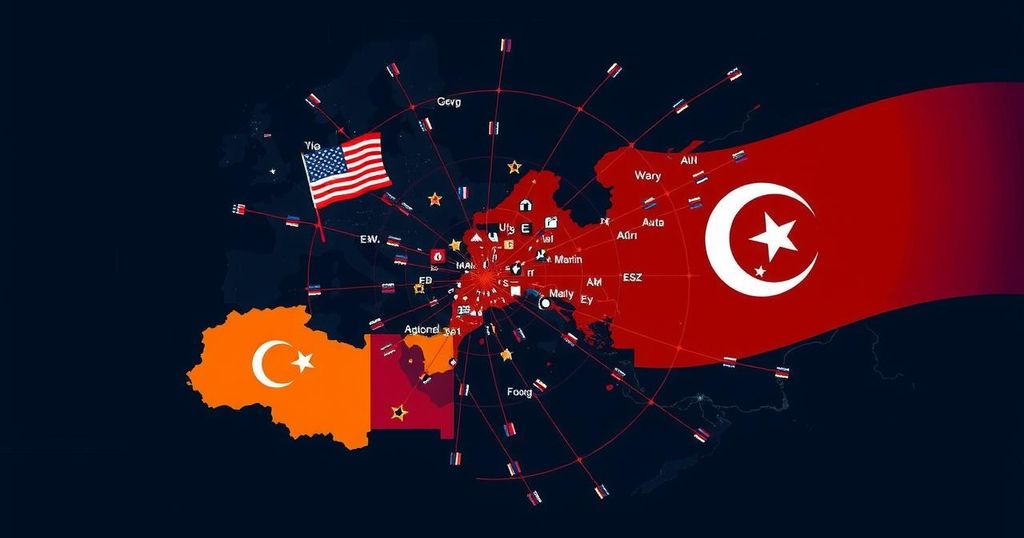The upcoming U.S. election is crucial for the Middle East, particularly concerning Israel. Residents of Trump Heights express a strong preference for Donald Trump, who is seen as a steadfast ally in the face of regional conflicts. In contrast, Kamala Harris’s approach emphasizes humanitarian issues and may reflect a shift towards a more balanced U.S. foreign policy. The election outcome is likely to determine the trajectory of U.S.-Israeli relations and the larger geopolitical landscape.
The potential impact of the upcoming U.S. presidential election on the Middle East, especially Israel, has ignited significant discourse. When Donald Trump previously held the presidency, he garnered favor in Israel, culminating in the establishment of “Trump Heights,” named in his honor following his recognition of Israel’s claims over the Golan Heights. Current residents of this area express concern regarding the ongoing regional tensions, particularly in light of recent conflicts involving Hezbollah and Hamas. Residents such as Elik Goldberg advocate for U.S. support for Israel, viewing Trump as an ally who aligns with their needs, evidenced by Trump’s decision to scrap the Iran nuclear deal and broker normalization agreements with several Arab states. Surveys indicate a notable preference for Trump among Israelis, particularly in comparison to his opponent, Kamala Harris, who has faced criticism from some for her comments perceived as undermining Israel’s stance in the ongoing Gaza conflict. Harris has been vocal about humanitarian concerns and is seen as potentially more amenable to a ceasefire, thus suggesting a shift in U.S. priorities toward a more balanced approach in the region, a view that some residents express skepticism about. Hera distinct political stances underscore a broader divide; while Trump advocates for Israel’s military strength and has historically adopted a hardline stance against Iran, Harris may focus more on immediate humanitarian issues before addressing larger geopolitical questions. Both candidates acknowledge the need for a new deal to contain Iran’s nuclear ambitions, yet the approach they propose diverges on several fronts. Political analysts suggest that under a Harris administration, there may be a more conducive climate for comprehensive negotiations beginning with ceasefires, while a Trump presidency could prioritize high-stakes negotiations with Iran. As the election approaches, political sentiments in Israel reflect a deep intertwining of personal relations and national interests, indicating that the outcome will significantly shape U.S.-Israeli ties and broader Middle Eastern dynamics moving forward.
The article discusses the implications of the U.S. presidential election on the Middle East, particularly focusing on Israeli attitudes toward potential candidates, Donald Trump and Kamala Harris. It highlights the contrasting foreign policy perspectives each candidate may bring, with Trump advocating support for Israel’s military actions and a hard stance against Iran, while Harris may emphasize humanitarian concerns and seek a more balanced approach. The article provides context on the longstanding U.S.-Israeli alliance and recent conflicts in the region, showcasing the hopes and concerns of Israeli citizens depending on the election outcome.
The outcome of the U.S. election is poised to significantly affect Middle Eastern geopolitics, particularly U.S.-Israeli relations. As opinions among Israelis lean heavily towards Trump, favoring his historically supportive policies, Harris represents a shift towards more humanitarian-focused engagement. These divergent approaches towards Iran and the ongoing Gaza conflict will shape expectations for U.S. involvement in future Israeli-Palestinian dynamics, highlighting the critical nature of this electoral decision.
Original Source: www.bbc.com







